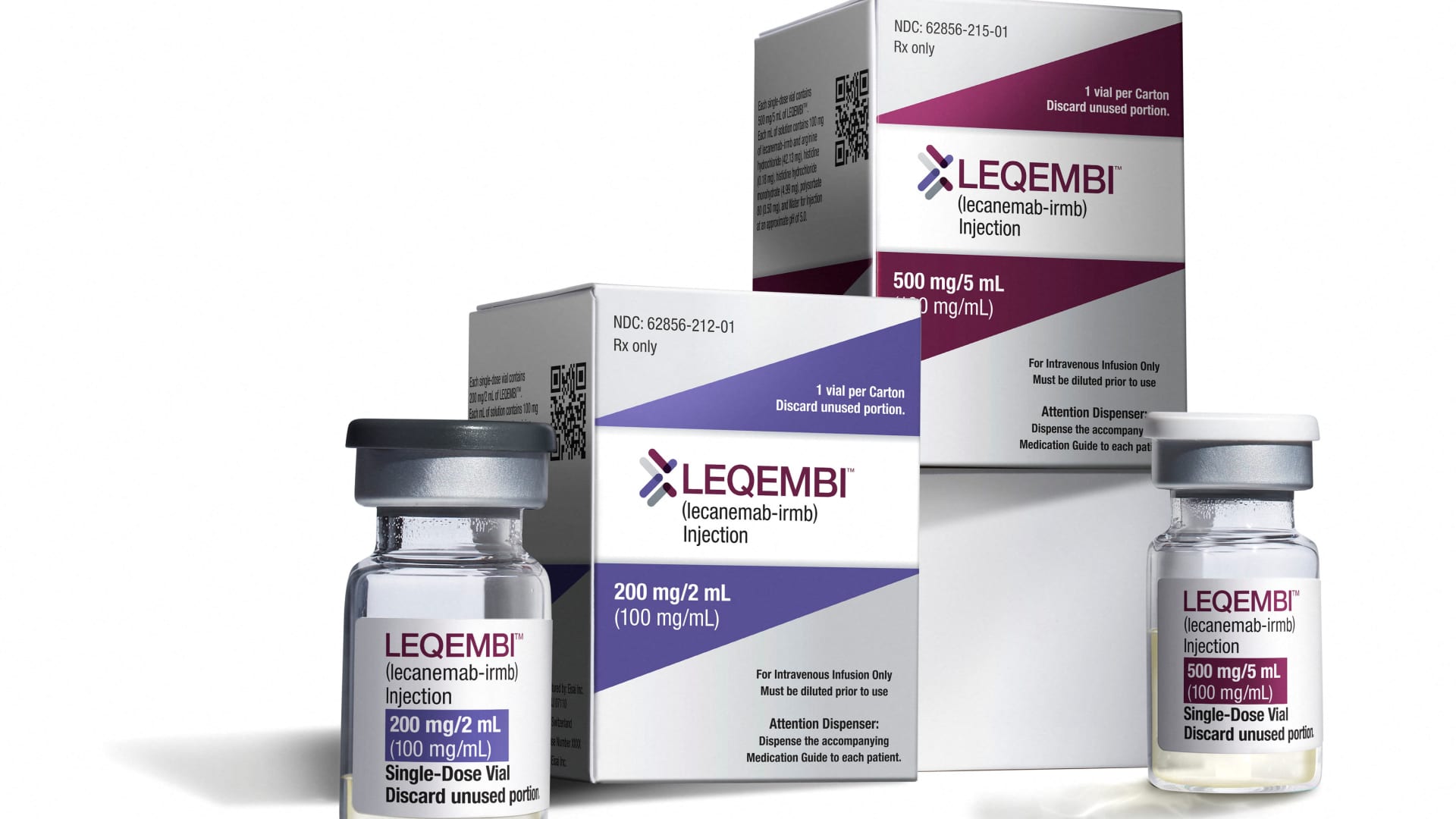Alzheimer’s drug Leqembi appears in this undated handout image obtained by Reuters on Jan. 20, 2023.
Eisai | Reuters
New Alzheimer’s antibody treatment Leqembi could cost Medicare up to $5 billion a year, it says Research Published this week in a leading medical journal.
If approximately 85,700 patients tested positive for the disease and received treatment, Medicare would spend approximately $2 billion annually Eisai and Biogen The product Leqembi, according to research published Thursday in JAMA Internal Medicine.
The seniors program would cost $5 billion if roughly 216,500 patients were eligible for the breakthrough treatment, according to the study.
The authors say the estimated cost to Medicare is conservative, and depending on demand and other factors, Leqembi’s payout could increase more than expected.
Researchers conducting the JAMA study included physicians, and Public health and policy experts. They are affiliated with institutions such as UCLA, the RAND Corporation, Harvard Medical School and Beth Israel Deaconess Medical Center in Boston.
Eisai and Biogen price the twice-monthly antibody infusion at $26,500 a year.
According to the researchers, there are additional costs estimated at $7,300 per patient per year related to neurologist visits, MRI tests and PET scans, infusion management, and monitoring and treatment of potential side effects.
The study assumes that Medicare will pay 80 percent of the cost, and patients will pay the remaining 20 percent in full or in part, depending on whether they have supplemental insurance.
Patients could face an annual bill of about $6,600 a year, depending on the state they live in and whether they have supplemental insurance, according to the study. Some low-income people who qualify for Medicare and Medicaid don’t pay out of pocket.
The Alzheimer’s Association, which lobbyes on behalf of patients with the disease, estimates that Alzheimer’s and other forms of dementia will cost $345 billion this year. Those costs could rise to $1 trillion by 2050, according to the association.
“This is the case without treatment. Prevention and treatment are the only ways to reduce this cost over time,” Robert Eger, the association’s head of public policy, said in a statement.
“But it’s not the cost that determines whether people get life-enhancing care—it’s the impact on people,” Egge said. “Treatment in the early stages of Alzheimer’s disease may mean better quality of life.”
Results of a clinical trial published in the New England Journal of Medicine in January showed that Leqembi had a positive effect on patients with early-stage Alzheimer’s disease.
The vast majority of patients currently do not have access to the expensive treatment because Medicare severely limits antibody coverage.
Medicare has pledged to provide broader coverage if the FDA fully approves the Leqembi treatment in July. Leqembi received fast-track approval from the U.S. Food and Drug Administration in January.
The Alzheimer’s Association, members of Congress and state attorneys general are pushing for Medicare to lift its limits and cover Leqembi universally.
In Eisai’s clinical trial, an antibody treatment targeting disease-associated brain plaques slowed cognitive decline by 27%.
No other drug currently on the market has shown this level of efficacy in slowing Alzheimer’s disease. Eli Lillys donanemab showed promising clinical trial results earlier this month. The company plans to file for full FDA approval this quarter.
Both Leqembi and donanemab carry a serious risk of brain swelling and bleeding.


